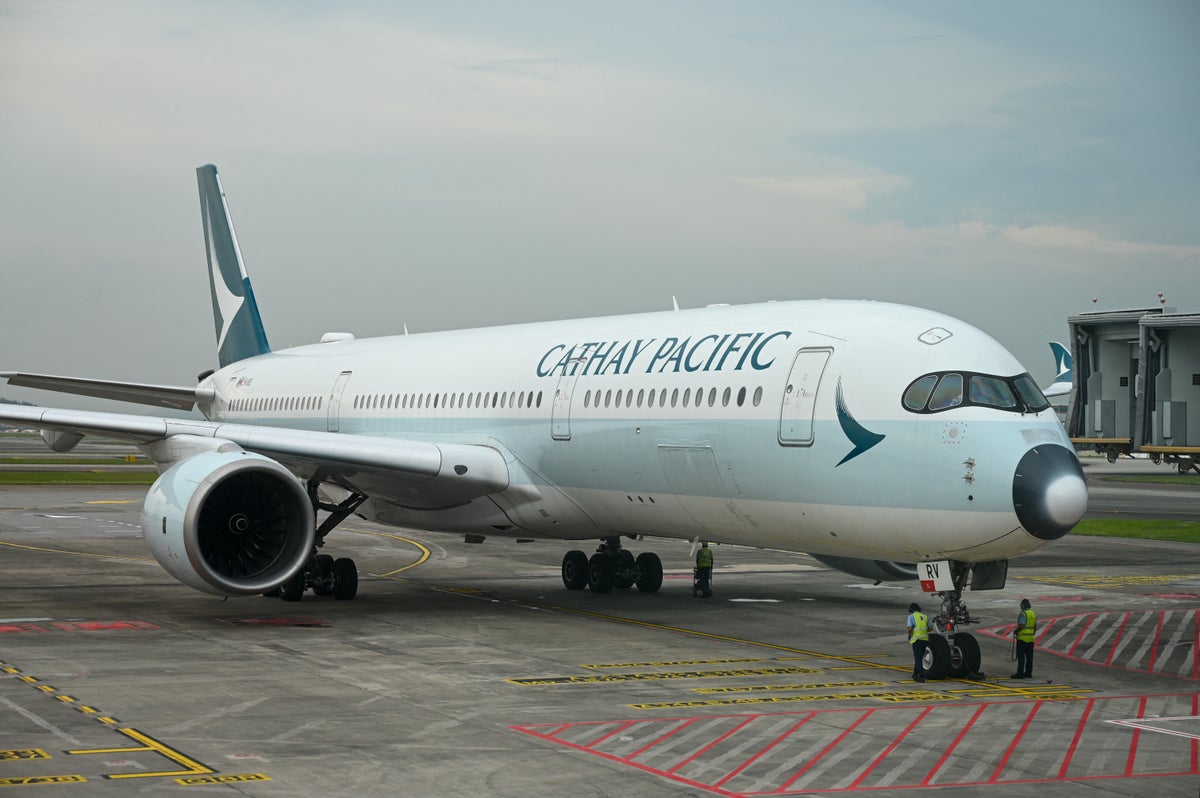
Eleven people were injured after a Cathay Pacific flight from Hong Kong’s international airport was forced to abort takeoff and evacuate its passengers due to a technical issue.
The incident took place a little after midnight on Saturday, when flight CX880 bound for Los Angeles was carrying 17 crew and 293 passengers. It performed “an aborted takeoff in accordance with standard procedures after a technical issue was detected by the crew”, Cathay Pacific said in a statement.
While the airline gave no details of the problem, one of the plane’s tires had overheated, causing it to burst, reported public broadcaster RTHK, citing police.
The injuries occurred during a “precautionary passenger evacuation” that was initiated, in which those on board used five escape slides to exit the plane, the airline said.
“We understand that 11 passengers are being treated at the hospital with injuries sustained during the evacuation process,” Cathay Pacific said. “Our priority is to look after all affected passengers and crew.”
“Nine of the eleven passengers who received treatment at hospitals have been discharged,” the airline said later. “Our colleagues will continue to provide support to the two hospitalised passengers and their families.”
Local actress Selena Lee Sze-wa, who was onboard at the time, shared her experience in an Instagram post.
“First time being evacuated from an airplane, but extremely grateful that no one was seriously hurt. Thank you to everyone who worked hard in keeping us passengers safe,” she captioned the post.
“Everyone was so frightened. When the captain and flight attendants told us to evacuate, everyone was nervous, screaming, and things became chaotic,” Ms Lee said in a video she uploaded, according to a translation by the South China Morning Post.
“It also made me shake and I was so scared. Slides were coming out, everyone had to slide down and most people got scratched.”
Using a different aircraft, the flight departed for Los Angeles at 10.12am, carrying 283 passengers.
Additional reporting by agencies







